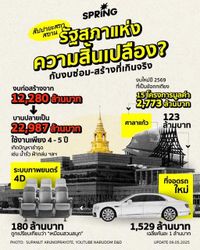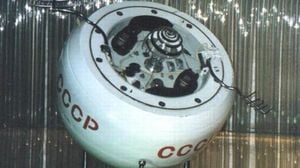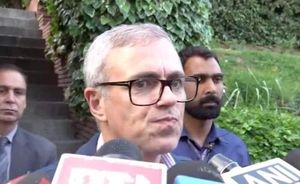Market analysts are expressing growing concern about the economic trajectory of the United Kingdom, particularly in light of the upcoming general election. According to a report by Investing.com on May 9, 2025, experts from Standard Chartered, led by analyst Steve Englander, suggest that the Trump administration's stringent tax policies might not facilitate easier access for UK goods, which could ultimately lead to higher prices for consumers.
These concerns are compounded by the potential impact of Trump's tax increases on imports from China, which are estimated to decline by 22%. This decline could adversely affect goods produced in China but assembled elsewhere, creating a ripple effect across various sectors of the UK economy. Analysts warn that scrutiny of UK goods is likely to intensify, potentially resulting in delays and increased costs.
Both Trump and Labour leader Keir Starmer have indicated a willingness to impose trade barriers, raising alarms about the possibility of a trade war between the two largest economies in the world. China is already facing significant challenges in critical sectors such as semiconductors, which could further complicate trade relations.
Economists have pointed out that trade barriers can lead to higher prices and reduced investment, especially in an environment of geopolitical uncertainty. In the first quarter of 2025, the UK saw a significant increase in the total amount of goods imported, primarily driven by rising import levels. However, there are concerns that Chinese trade could reach a peak within 90 days if trade barriers remain unaddressed.
Amid these economic developments, the Thai government has approved a budget of 2.7 trillion baht, aimed at stimulating the economy through various infrastructure projects, including roads and bridges. This ambitious budget is expected to create jobs over the next five years, with Prime Minister Srettha Thavisin emphasizing the necessity of these projects for Thailand's economic growth and competitiveness.
The 2026 budget includes 15 projects totaling 2,773 billion baht, focusing on infrastructure development. Among the projects is a road construction initiative worth 1,529 billion baht, which includes land compensation costs. The Prime Minister has also highlighted the importance of integrating digital technology to address infrastructure challenges, ensuring that these developments meet the needs of the public.
However, there are concerns that new government infrastructure projects, referred to as "infrastructure construction," may receive preferential treatment over existing projects. This raises questions about the transparency and fairness of budget allocations, especially in light of the pressing economic conditions faced by the country.
In addition to the infrastructure budget, the Thai Parliament is grappling with significant scrutiny over a proposed budget of 2.7 billion baht for the renovation and expansion of the new parliamentary building, which has faced accusations of extravagance. Despite being in use for only five years, the building has already shown signs of deterioration, raising questions about the value of the original construction budget, which ballooned from an initial 12,280 million baht to over 22,987 million baht.
The new budget proposal has sparked intense debate among parliament members and the public regarding its necessity, reasonableness, and transparency in the use of taxpayer money. Critics argue that many of the proposed projects, including an additional parking structure, are unnecessary and represent a waste of public funds.
Senators have reported common issues such as leaks from rainwater and air conditioning, collapsing ceilings, and inadequate signage, making navigation within the building challenging. One senator likened the current state of the parliament to a "maze" that requires mental mapping to navigate effectively. Urgent issues, such as the long-standing disrepair of men's restrooms on the B1 level, have yet to be addressed, raising further concerns about the allocation of funds.
Among the 15 proposed projects, many have drawn heavy criticism, including the construction of an additional parking structure estimated at 1,529 million baht, which is seen as excessive given the already existing parking spaces. Questions have arisen regarding who should be held accountable for the planning errors that led to the need for additional parking facilities in the first place.
Other criticized projects include the renovation of two ceremonial halls at a cost of 123 million baht, which some argue prioritizes hosting foreign dignitaries over addressing the needs of the Thai public. Critics have pointed out that the focus on grandeur does not align with the actual needs of the citizens.
Additionally, a budget of 180 million baht for a 4D cinema system has been deemed unnecessary by many parliament members, who argue that genuine political engagement cannot be fostered through simulated experiences. They emphasize that real participation requires witnessing the legislative process firsthand.
The proposed budget also includes a 133 million baht design and decoration project for the president's podium backdrop in the assembly room, which has been criticized for its perceived lack of necessity. With ongoing issues of leaks and structural integrity, many believe these funds should be directed toward resolving fundamental problems rather than cosmetic enhancements.
Concerns have also been raised regarding the process through which these budget proposals have been developed. The director of the building office indicated that the budget requests were made before their appointment, suggesting a lack of oversight in the planning process. This has prompted calls for transparency and accountability regarding the origins and management of these budget proposals.
As the Thai Parliament continues to deliberate on these budget proposals, the public and parliamentary members are closely monitoring the decision-making process. There is a growing expectation that the leadership will heed the calls for accountability and reconsider the necessity of projects deemed excessive, thereby restoring public confidence in the management of taxpayer funds.
Ultimately, the quality of the parliament is not determined by the grandeur of its buildings but by its effectiveness in representing the public and ensuring transparency in government operations.




